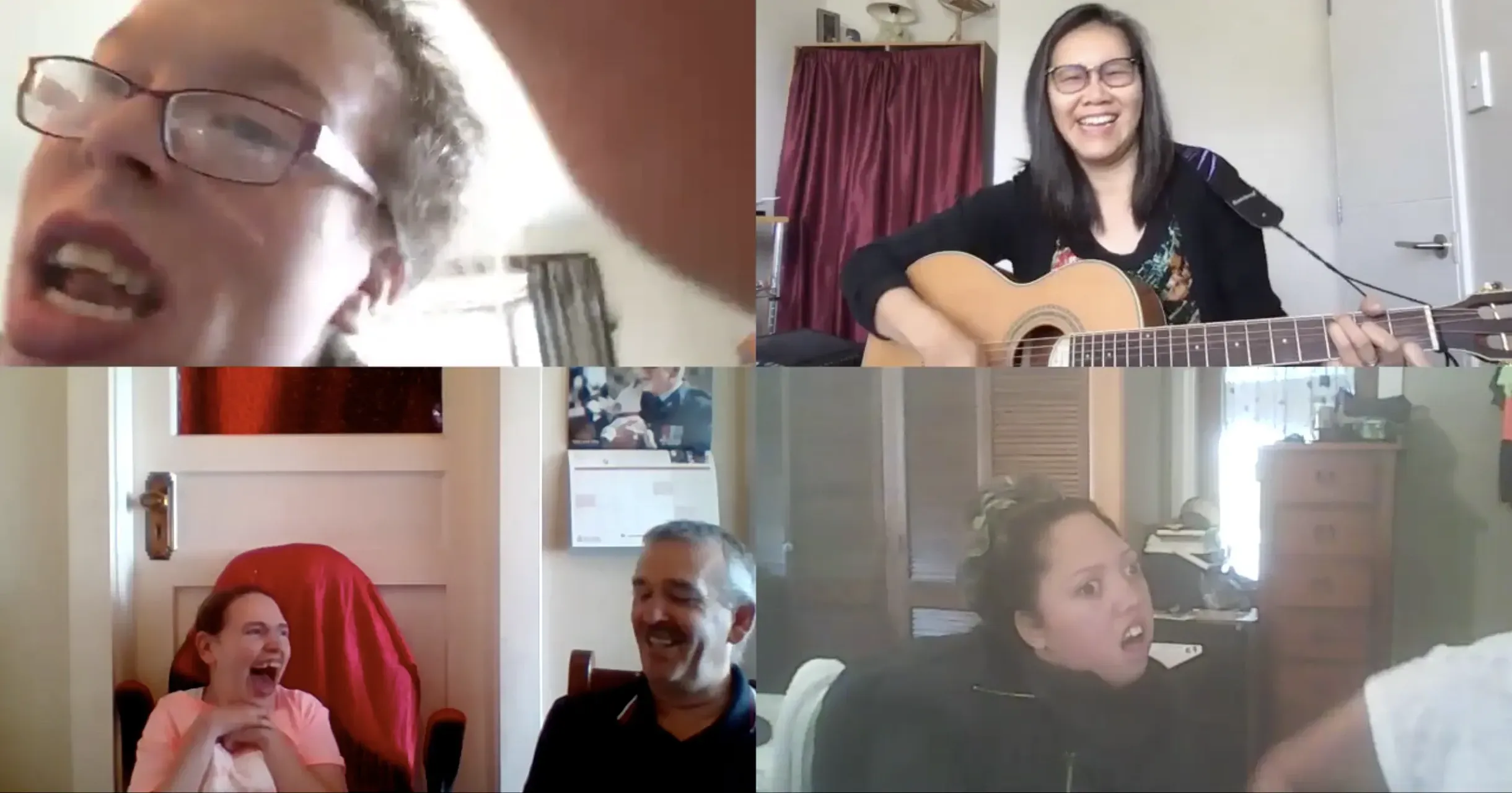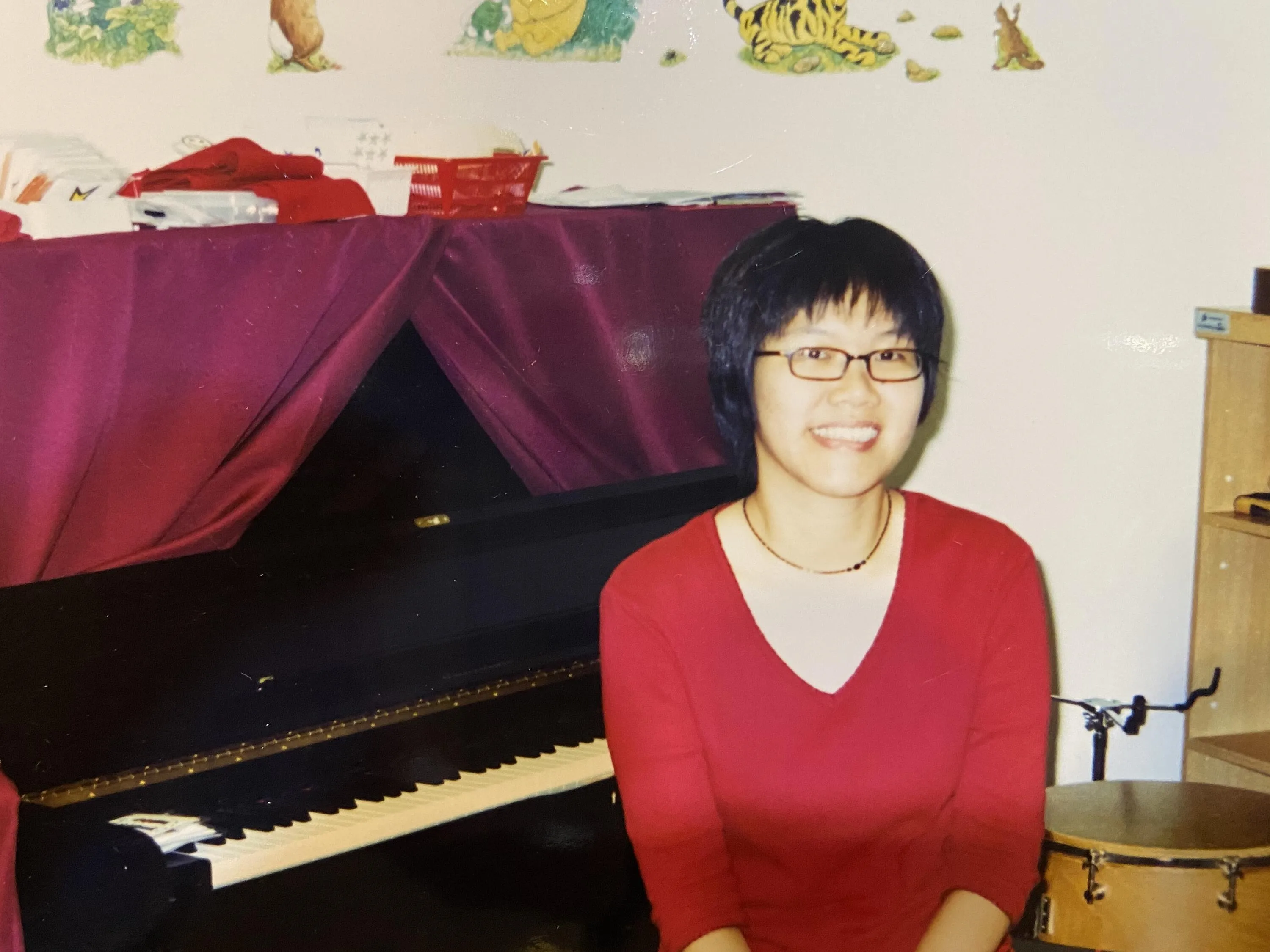Beyond Inclusion: Everyone Deserves to Belong
Written by
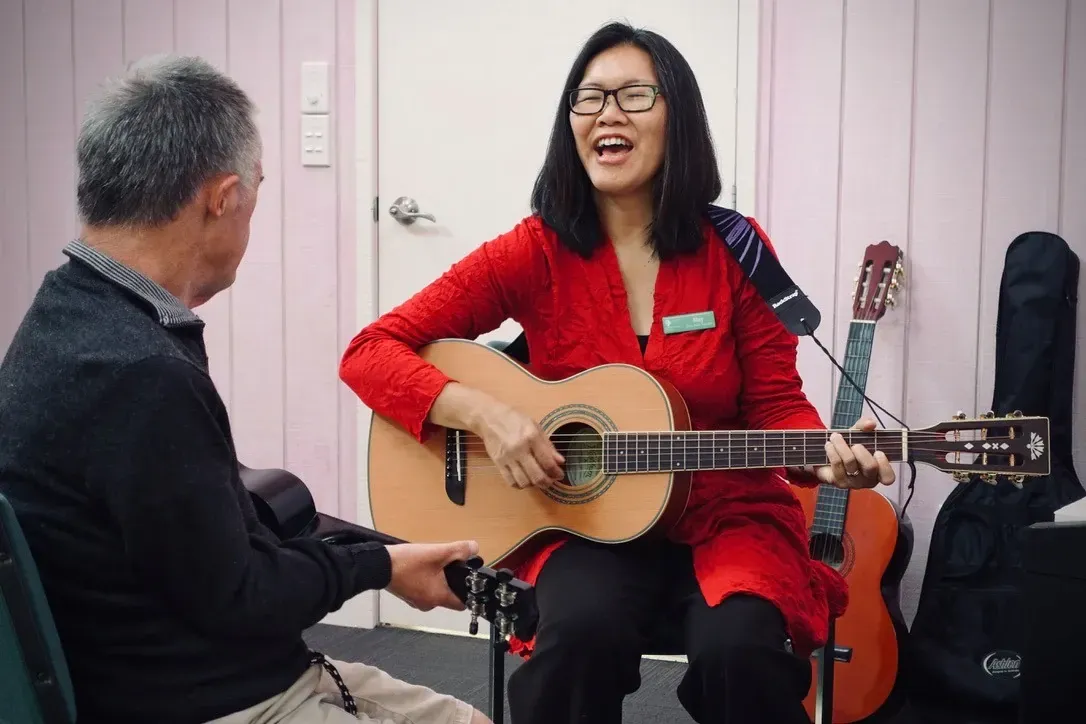
May Clulee is one of over 70 registered music therapists in Aotearoa New Zealand, with a strong stance on disability advocacy. To celebrate Music Therapy Week (19-25 October), The Big Idea asked May what issues need to be raised to the wider creative community.
I proudly support Music Therapy Week 2020’s theme, “Keeping Community In Mind”.
Hallmarks of New Zealand music therapy include our diverse approaches and strong community focus. This year’s events reflect our aims of cultural competence and collaboration across a range of intersecting spaces.
Many music therapists work in the disability sector, myself included. In the 90s, as a freshly minted music therapist, I worked in a “special school overseas that “treated” children’s “problems”. Referrals focused on their medical diagnosis and clinical history. They were defined by their illnesses or disabilities. Success was measured by progress towards “normalised” behaviours or targets.
Over the years, my philosophy has evolved dramatically. I am proud of my South East Asian heritage, but like many immigrants, I experience microaggression, prejudice and discrimination.
Similar injustices are experienced by my partner, who lives with a disability. These experiences have shattered many misconceptions and stereotypes and shaped my values. Advocacy work has awoken me to the systemic injustices that pervade our health and social services institutions.
Challenging the system
In this country and within the creative arts community, people continue to experience disabling environments and injustice. A similar challenge to disabling attitudes and actions was voiced recently by Pelenakeke Brown, Interim Artistic Director of innovative dance company Touch Compass, in a post on The Big Idea, Making Art Accessible.
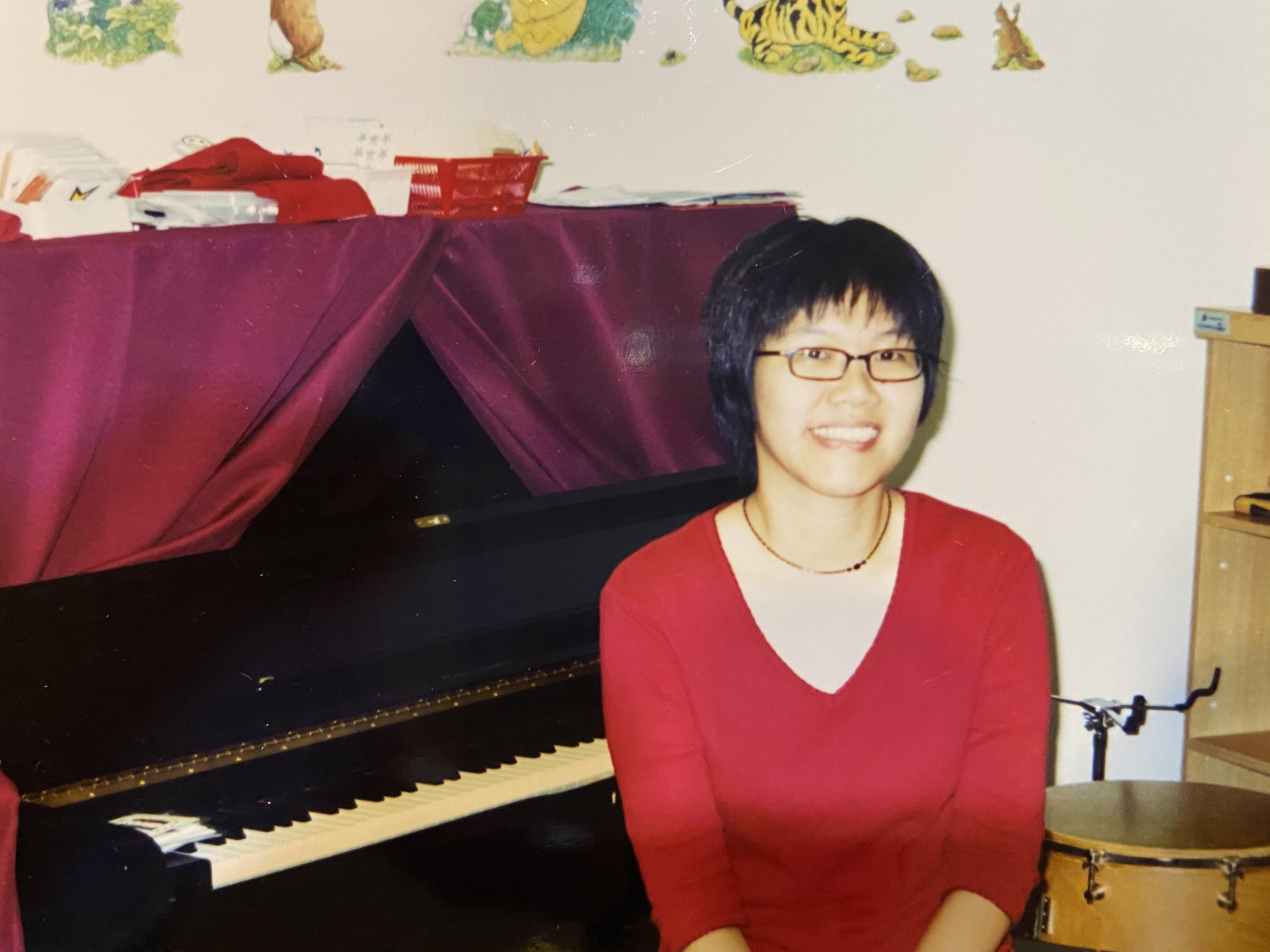
May Clulee at her first music therapy job in 1999. Photo: Supplied.
Different lenses now inform my work. One perspective that resonates with me is Post Ableist Music Therapy (PAMT). Developed by music therapist Dr Carolyn Shaw, PAMT pushes back at ableism - a set of beliefs and practices that discriminate and devalue disabled people.
PAMT advocates environments and experiences that address barriers, explore connections and provide less restrictive spaces. This approach fosters inclusion, collaboration, and reduction of power imbalances between people - a mindset requiring us to examine hidden ableist attitudes that oppress or discriminate.
PAMT also draws from indigenous frameworks such as in the work of Māori music therapists Nolan Hodgson and Ruby Solly, aligning with a Māori worldview and Māori models of health.
Inclusion is not enough
A spiritual lens also guides my practice. Theologian John Swinton challenges our views of disability and community:
“The political rhetoric of inclusion, while possibly necessary, is deeply inadequate to help us understand what dis-ability is and what it really means to be with people who have received this label. We need to shift our thinking from inclusion to belonging and to reframe our practices from politics to love.”
Rather than relying solely on government legislation, true transformation involves people being part of loving communities, demonstrated by a deep commitment to develop authentic relationships.
‘We can be who we want to be’
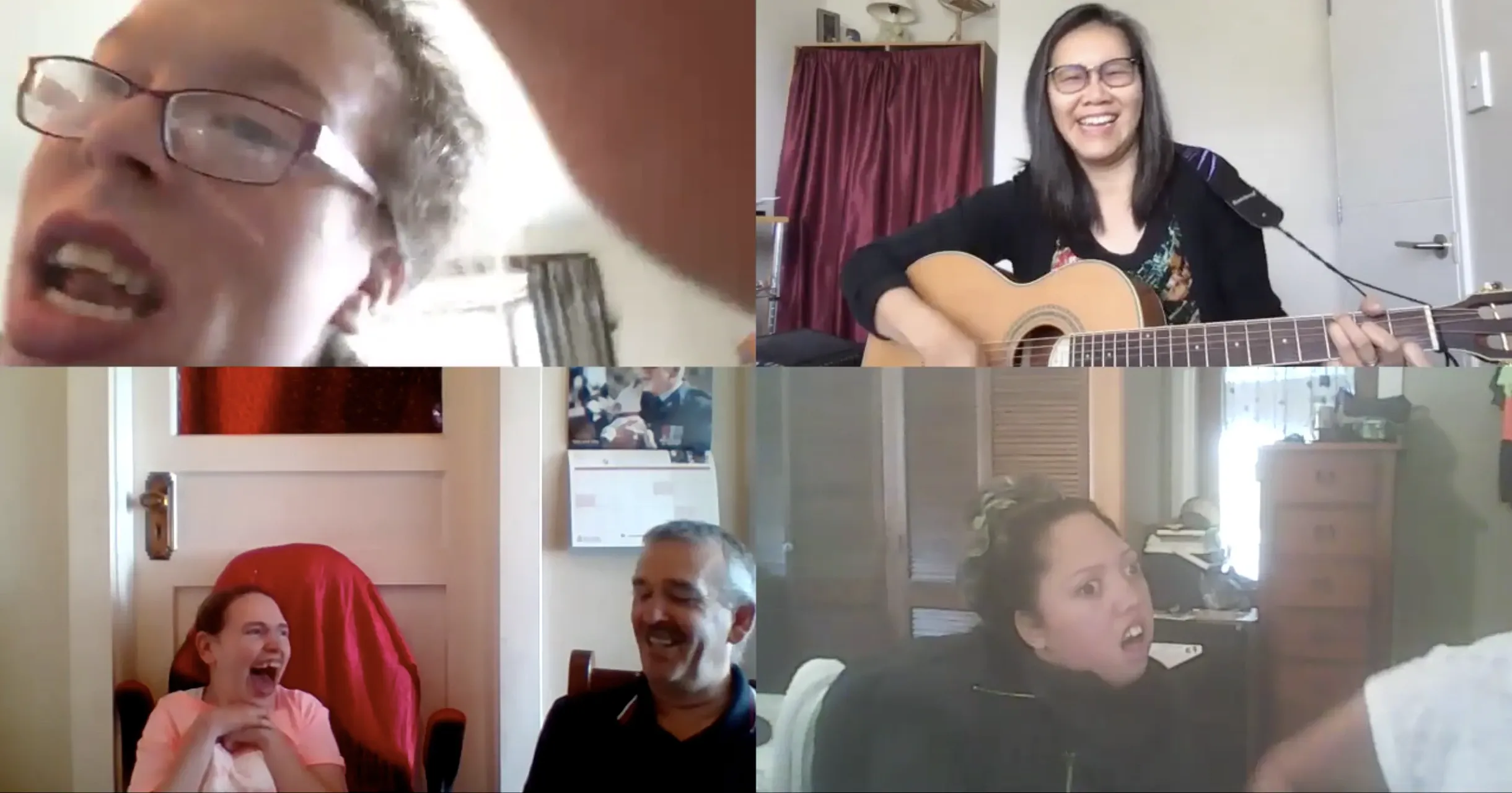
May Clulee's community music therapy group on Zoom during lockdown. Image: Supplied.
Once a week, I facilitate a community music therapy group of young people and their whānau/support people. Over the course of a year, these rangatahi have developed their own Group Rules Rap that begins each session; and collectively wrote a song called “Colours in our World” celebrating the diversity of our group. Now we are in the process of turning it into a music video. During lockdown, we Zoomed twice weekly and travelled the Covid-19 rollercoaster together.
One participant recently told me: “[In this space] we can be who we want to be!” – I felt so joyful! Personally and professionally, these words resonate deeply with my own values and experiences.
From You and Me - to We
My vision of music therapy is encapsulated in the phrase “From You and Me to We”.
Music pushes the boundaries of inclusion. Music draws disparate communities together. Music creates a deep sense of belonging as relationships are nurtured within the safe and consistent spaces of the “We”.
This is not a one-sided affair but a collaborative effort - a respectful, authentic partnership. Here we experience mutuality, intention, and fluid transitions between leading and following, giving and receiving.
Interrogate your thinking
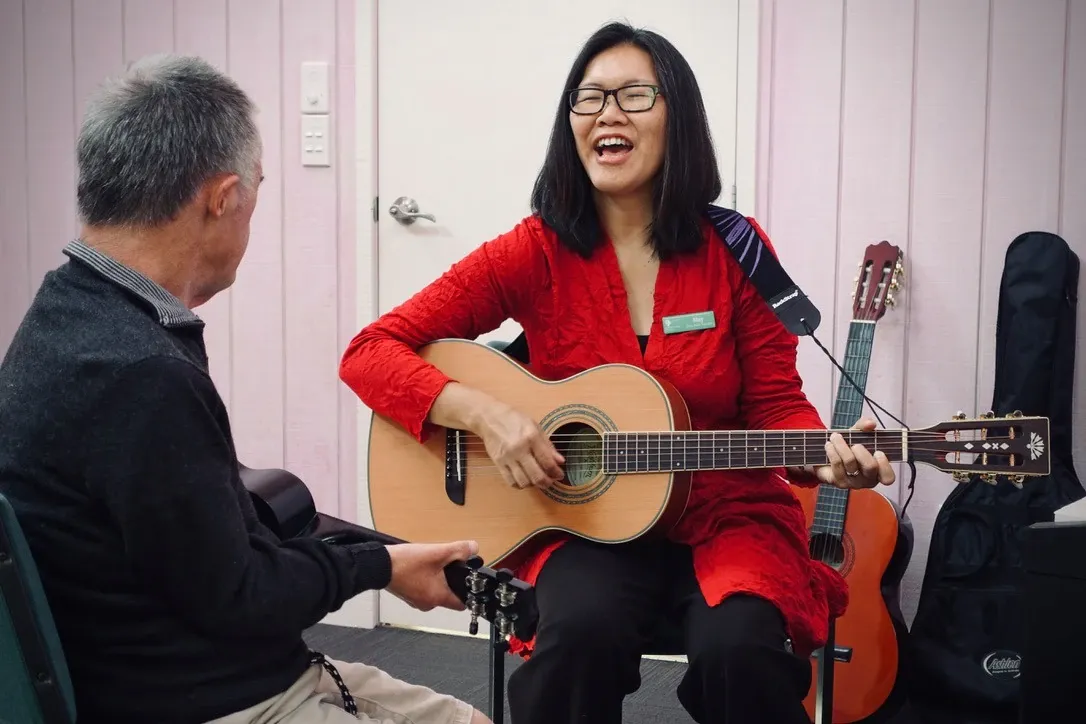
May Clulee working with an individual client in 2019. Photo: Southern Music Therapy.
All people have the right to self-determination. Many people experience this autonomy within music therapy yet we are still a long way from seeing this happen in society.
We all need to interrogate our thinking and ask questions of ourselves – Are we listening to the voices of disabled people? Are we pushing back against attitudes and barriers that continue to discriminate and oppress? Are we taking action to nurture loving and transformational communities?
Personal values shape our identity, creativity and interactions. When we all come to value a less disabling society, we can then “be who we want to be”. This Music Therapy Week, let’s keep our whole community in mind.
